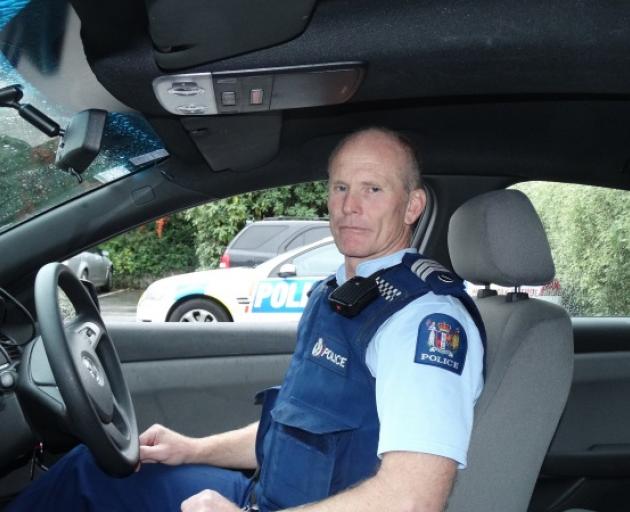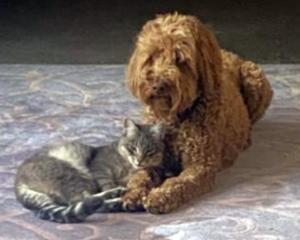
One resort cop says drug harm is "through the roof" and warns we’re "one punch away" from another CBD fatality.
The five-minute compilation video, taken from CCTV cameras, shows the abhorrent level of street violence in the Queenstown CBD after dark.
Police will not be releasing the video to the public.
Sergeant Chris Brooks showed it to mayor Jim Boult and district councillors — and Boult is so incensed he’s forming a stakeholders’ group to come up with solutions to stamp out violence fuelled by booze and drugs, before someone else dies.
He says the video was "horrifying".
"Watching people kicking other people’s heads and smacking bottles over people’s heads and one person holding another person while somebody else
beat the tripe out of them … I was disgusted that activity like that is taking place in our town.

"The CCTV footage doesn’t lie … it’s all very well to say ‘it’s not us’ but it’s happening in our town.
"We need to do something about it."
Brooks says the weekly brawls, with life-changing consequences for all involved, is not a side of Queenstown anyone can be proud of and, for police, "it’s not a problem we’re going to arrest our way out of".
"That’s the ambulance at the bottom of the cliff stuff — it’s already happened if we’re making the arrest, you’ve already hurt somebody, and we’re not about that.
"It’s about stopping it."
Anecdotally, Brooks says there has been a 56% increase in public place assaults in Queenstown since 2016 — and the level of those assaults is getting worse.
He warns "we’re only one punch away" from another fatality, like that of Queenstown family man Mark Smith on November 19, 2009.
UK-born Paul Richards was subsequently convicted of the 47-year-old’s manslaughter and sentenced to two years’ jail.
That night Richards was grossly intoxicated when he assaulted Smith at the Camp Street taxi stand, delivering a round-house punch to Smith’s neck, causing a tear to an artery and, as a result, a fatal haemorrhage.
Today, Brooks says booze is part of the problem, which is why police are promoting public booze bans — like that implemented after Crate Day 2016 which has seen anti-social behaviour all but disappear, at least during daylight hours.
Cops this week pushed for the Christmas booze ban to be extended to cover Christmas Day to stamp out the hundreds of drinkers who flock to Queenstown beach for an "orphans" party — that was discussed by Queenstown Lakes District Council yesterday, where councillors agreed to the proposal.
But, Brooks says, drug intoxication is also playing a major part in the Whakatipu.
While bar and security staff are "doing their utmost" to stop drugs entering premises, there are people in the community targeting bars to "run their own businesses".
On Wednesday afternoon, six people appeared in Queenstown’s court, all having been charged in the preceding 24 hours in relation to supplying Class A, B and C-controlled drugs.
It follows several other arrests, for similar offending, in recent months.
"Drug harm is an issue for a lot of towns in NZ and Queenstown is no exception," Brooks says.
"We have organised crime visiting — we are seeing more of that type of element as well."
Boult says it’s not an issue that will be solved by the police, or the council, on their own.
"It’s a community issue and it requires community effort and community buy-in to find a solution to it.
"We need to find a way to stamp this out."

"I’m not saying we’ve got an answer, but we have a determination to try to do something about it.
"I think we’ve got to be careful that we still understand for most law-abiding people, Queenstown and Wanaka are still safe after dark.
"But there is an element there who are determined to cause havoc and what I’m worried about is that some innocent bystander is going to end up seriously injured, or maybe even deceased, as a result of it."
Post-lockdown violence
A Queenstown security manager says there has been a "huge" rise in violence in Queenstown since lockdown ended in May.
Allied Security Central Otago ops manager Stuart Mountain says in the nine-odd years he’s called the resort home "this is definitely some of the worst that I’ve seen".
"We’ve seen a huge, huge rise in violence, especially against security, and patron-on-patron violence — not necessarily inside the venues, but especially on the streets.
"We’re all fighting an uphill battle."
Mountain says he was punched in the head and spat on last month by a would-be patron who’d been refused entry because he was too wasted.
One of his staff was spat on this past Saturday for the same reason.
"It’s disgusting.
"We’ve seen a sharp rise in the amount of violence in Queenstown since we’ve come out of lockdown, 100%."
Mountain believes part of the issue is Kiwis coming to the resort for a weekend thinking "we can get away with it".
If a tourist arcs up, generally, they realise their visa may be put at risk if they’re arrested, he says.
"But the Kiwis really don’t care."
He says security staff at Allied, and October Protection, are dealing with it "every weekend" and agrees drugs are becoming an increasing issue, particularly drugs like MDMA which have been laced with something else, for example, methamphetamine.
His staff are trained to test for drug use, and that’s worked well, so far.
But Mountain believes putting some extra security measures at domestic airports, including Queenstown Airport — for example making use of the drug-sniffer dogs usually deployed for international services — would be a good start.
"A lot of people coming in to town are flying in through the airport … if we can get them [using the dogs] straight at the airport … I think we’ll definitely see a sharp uptake of confiscated drugs."











